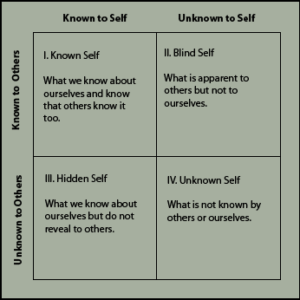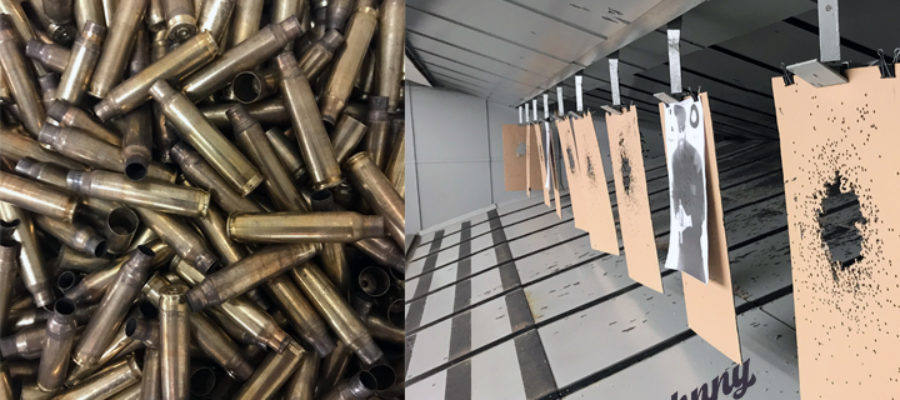A number of years ago I was at SWAT training on the firing range and the team was running through a box drill. The drill consisted of three separate targets — one on the left, one on the right, and one in the center. The shooter had to follow a path marked by cones that led the shooter in a rectangular pattern (hence the term box drill). This forced the shooter to shoot on the move while having to compensate for the change in angle and distance as he walked around the cones from one point to another.
Faking It
The guy who went first went slow and made sure he got his hits. As the rest of the team progressed through the drill, and more and more holes began appearing in the targets, each consecutive shooter went faster and faster. It got to the point where no one had any idea if they were hitting the target or not because the targets were so chewed up.
Because none of us could see where our rounds were going, we all acted like we were super sexy high-speed operators. We moved faster, shot faster, puffed our chests out a little bit more, and our arms mysteriously flared out from our sides as we strutted around like a bunch of peacocks. Without the feedback of a fresh hole in the paper, there was no way to measure our accuracy and there was no accountability. The drill gave us all a false sense of accomplishment.
Can’t Fake It
Now, transition to a different day and a different drill. Back on the range, the team was now shooting steel targets and the shooter couldn’t move to the next position until the metallic ping gave them permission. Interestingly, things slowed down. There was no faking it. You either got a hit, or you didn’t, and everybody knew it. Unlike paper, the steel targets give us instant feedback. We were slower, more careful, and made necessary, real-time adjustments.
Without feedback it’s easy to pretend we’re doing great and even easier to think that we are. There is something in our human nature that wants the credit even when it isn’t exactly due. Then there’s another part of us that is just simply unaware. We don’t know what we don’t know. Without feedback — without an outside, objective force — we can walk around as ignorant as the Emperor in his new clothes (also known as buck naked).
Blindspots
There is a model in psychology that was developed in 1955 by psychologists Joseph Luft and Harry Ingham called the Johari Window. The model looks like a window — a square divided into four quadrants. Quadrant II represents an area of our lives or our behavior that is known to others, but unknown to ourselves — also known as a blindspot.

Blindspots are things about us that others know, but that we ourselves are unaware of. Blindspots could be something that we do, the way that we sound, or a look on our face that could be unknown to us, but obvious to everyone else. We might even do these things on a daily basis all the while inadvertently offending, frustrating, or annoying those around us while we ourselves remain woefully ignorant.
Chim-Chimney Chim-Chim-Charoo
One day when I was working in patrol, I processed the scene of a burglary early on in my shift. I took out my fingerprint kit and dusted around the window and window sill that had been used by the bad guy to get into the house. Ya, I felt pretty important throwing powder around and twirling that brush like a pro as I bestowed my vast forensic knowledge upon the homeowner who stood and watched. After clearing the scene, I went to a couple calls with various officers and then took my lunch break at the station. Before hitting the road again I used the bathroom and was horrified at what I saw in the mirror. I looked like Bert the Chimney Sweep from Marry Poppins. I had black fingerprint powder all over my face! No one I had been around that day had said a word about it. I looked like an idiot. What the heck!?
So there I was going about my business completely unaware of the volcanic ash all over my face while everyone else knew about it but said nothing. Why? Maybe it’s because they were afraid of confrontation, being offensive, or hurting my feelings. Or they thought it was funny, which, knowing my coworkers, was probably more likely.
Feedback Matters
If we are to succeed as a team we must give each other honest feedback. Feedback is a gift we can give to the other person. It is not to embarrass or chastise — it is to improve. Just like the ping of the steel target or the reflection of our ash-covered face in a mirror, honest feedback gives us the opportunity to make the necessary corrections that will better ourselves and those around us. Eliminating blindspots by giving feedback will improve your marriage, your family, your work, and your team.
For example, I have a resting angry face. How do I know this? I have a wife. My wife tells me all the time at social gatherings that I look like I want to kill someone. I can’t help it. I guess I just naturally look homicidal. But now that I have that feedback from her, I have become more self-aware and work to eliminate that blindspot. Now I start my conversations at parties by saying, “Hi, I’m not here to kill you. It’s just the face God gave me. Ha ha.” So, now I have more friends. Thanks, honey.
Humility Does Too
Not only should we give feedback, but we also need the humility to take it. Grasping the cold reality that we are human and that there is a very high likelihood that we are not perfect is absolutely necessary to receiving feedback. Yes, we ought to keep the source in mind, but when it comes from a reliable one, trust it, embrace it, and make the necessary changes. You won’t hit your target unless you know you’re missing it and are able to make the necessary adjustments.
_____________________________
Remember, feedback should be:
Objective – It reflects reality
Timely – Lag time should be minimal
Useful – Constructive, not destructive
Tactful – Don’t be a jerk
_____________________________
Thanks for reading! Do you have a story that you think we could learn from and that you’d like to share with Johnny Tactical nation? Fill out the contact form and include your name, rank, and department, or email it to [email protected] and follow these guidelines:
- It must be a firsthand account
- True
- Have a lesson, principle, or tactic to apply
- Cleaned of names, dates, and places
- Include your call sign
If your story is selected and published in our blog you’ll get the credit using your call sign and we’ll send you a free Johnny Tactical sticker.



1 Comment
Leave your reply.